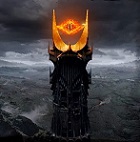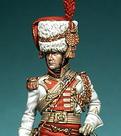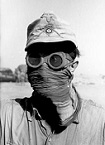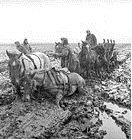chuckfourth
Posts: 222
Joined: 10/26/2011
Status: offline

|
I agree with Pelton wholeheartedly
I posted this already in
http://www.matrixgames.com/forums/tm.asp?m=3428981
But I believe the previous posts content is relevance to this thread also.
In my opinion there is a great need to improve the combat algorithm at this lowest level first, -then- look at higher level changes in the combat engine/game.
The current assault modelling appears relatively simple. As I understand it the two sides line up and march forward all weapons firing. This results in way too many specialist weapons and indirect fire weapons being damaged/destroyed.
my suggestion for how to run an assault in game.
1. Air Attacks.
2. Artillery duel.
3. Assaulting Artillery barrage on enemy positions.
4. Infantry advances.
5. Advancing infantry shelled by defending Artillery.
6. Advancing infantry comes under fire from enemy direct fire weapons, Advancing support weapons return fire.
7. Advancing infantry closes.
8. Armour exploits.
Currently the divisional and higher artillery is treated as though it was emplaced in the front line. Divisional artillery and Higher(Corps artillery) are long range indirect fire weapons. In practice sensible emplacement of this type of artillery is at its maximum range from the position to be shelled or supported.
So the Divisional and Corps guns need to be treated differently to the rest of the equipment. Basically they need to be removed from taking casualties as they are in fact removed from the battle. With some provisos, see below.
Those steps again in detail
1. Air Attacks.
Air attacks unchanged they can engage anything, the bigger the target the more likely it is to be engaged.
2. Artillery duel.
Only Heavy Guns batteries (corps artillery) engage in the artillery duel(excluding Rocket batteries) and then only those with very long ranges. The probability of qualifying Artillery firing couterbattery should be very low. And vary with nationality and equipment range.
The bigger the guns(batteries) range the more likely it will fire counterbattery.
Each battery conducting counterbattery results in one of the enemy (Divisional guns or Corps) batteries not firing. (ie they cancell each other out).
The countered battery only takes disruption, no guns are damaged.
3. Assaulting Artillery barrage on enemy positions.
The Effect should be mainly to disrupt "squad" category and 'soft' equipment from the equipment tab.
The ratio of casualties between field pieces, squads, HMGs, Mortars etc should be the same as the ratio of these equipments to each other in the formation being bombarded. Artillery is an -area- weapon.
Anything with armour in unaffected. (Armour defeats schrapnell and chance of a direct hit is tiny.)
Neither sides Artillery (Divisional and Corps) receive any disruption or casualties.
4. Infantry advances.
Only squads(infantry, engineer, cavalry etc), assault guns, CS tanks and Flame tanks advance. Everyone else stays put.
So only these categories in the assaulting force receive casualties.
5. Advancing infantry shelled by defending Artillery.
Indirect fire Defending Artillery fires on only advancing assault force as defined in step 4.
Defending artillery is all indirect fire guns mortars and Rockets.
The shorter range and hence later engagement time of the smaller mortars is balanced by their high rate of fire one employed. Again this is Area fire.
Result negligible on armour (direct hit extremely unlikely). "Squads" are moving and so suffering high damage/disruption.
Armour emerges unscathed
For Armoured infantry no effect.
6. Advancing infantry comes under fire from enemy direct fire weapons, Advancing support weapons return fire.
For the Attacker only the advancing assault force as defined in step 4. take casualties.
The Attackers Mortars and Infantry guns take no casualties.
Assaulting Assault guns, CS tanks, Flame tanks, fire as range permits.
Defending AT returns fire as range permits. (assuming the gunners know at what range they can penetrate the oncomming armour)
Run a subroutine here between Assaulting armour and defending AT until one or the other has 100 percent disruption/casualties.
Defending AT engages -only- Armour.
Defending "heavy squad weapons" and "squad weapons" and "man weapons" fire as the range permits.
7. Advancing infantry closes.
Now Attacking squads can fire as Range permits. Attacking casualties are still restricted to the advancing assault force.
I base the following "defender casualty" routine on the premise that the various formations are deployed to be mutually supporting and sited in depth, to mean that the infantry screen is placed forward and their support weapons are emplaced in depth.
Defender casualties reflect Divisional deployment, This varies but generally the formations exist in 3's so for example,
In a platoon the 3 squads will be forward, the platoon HMG sited in depth so you need to nuetralise 1 squad ( or one third of the platoons squads) before you can engage the platoons HMG. In a coy 3 platoons would be forward and the company HMGs and mortars placed behind, so you have to destroy one platoon before you can engage the -coy- mortars and HMgs. One -coy- (or its equivelent) needs to be nuetralised before you engage the battalions heavy mortars. one battalion needs to be nuetralised before you can destroy the regimental infantry guns. and so on.
When I say 'engage' there should be a probability here, ie nuetralise one coy before you can engage the battalions heavy mortars reads nuetralise one coy (or equivelent) to get a 50 per cent chance of engageing the battalions heavy mortars, nuetralise all 3 coys give you 100 per cent chance of engageing battalions heavy mortars
8. Armour exploits.
For an armoured division steps 1-7 are run as described, using the corresponding elements in the armoured division. ie the infantry element of the armoured division is deployed first. -then- the armour is committed. Once the one third of squads within the defending division has been damaged/disrupted armour is free to engage all enemy categories of equipment(exploit).
conditions
Flak should not be employed by the Attacker at all. In the defence it is employed rarely. (as is the current case I believe)
Currently the AI commits AT and flak support units to attacks this should I think be discontinued as AT is a defensive (support) weapon, even when tracked. Tanks are for the attack.
On the defence AT weapons are only allowed to fire at armoured vehicles otherwise they are not committed, (ie dont suffer any casualties) Defenders AT weapons fire as range permits.
Attackers AT weapons are not employed at all and so the Attackers AT suffer no casualties in any event. note this should include "tracked tank destroyers"
To implement this we would need more categories for ground elements. We can then differentiate between identical Coy, battalion, regimental and divisional ground elements. ie "HMG company" and "HMG battalion".
Equipment page would need to differentiate between howitzers (indirect fire divisional guns and better) and direct fire infantry guns, currently they are all "guns" the howitzers need a new category maybe howitzer, light med and heavy. So they can then be 'abstacted' for the barrages.
Basically indirect fire artillery and AT engagements are removed from the general assault. (ie if there isnt any armour to shoot at the AT guns limber up and fight another day)
Implementation (based loosely on a german inf division)
you need as set of tables for each division
ie for example a Division might contain
3 regiments
9 battalions
27 companies
81 platoons
243 squads
and in terms of MGs
81 HMG:Platoon
27 HMG:Coy
for indirect fire weapons it might be
81 Mortar:Platoon (50mm)
54 Mortar:Coy (81mm) (two per coy)
18 Inf gun:Regiment (75mm) (6 per regiment)
calculate the ratios between the different formations supporting weapons (another table)
3 squads for each HMG:platoon.
13.5 round up 14 squads per Inf gun:regiment.
Keep a tally on how many "squads" you have destroyed (and then HMGs etc)
Then you need a set of rules to force the assaulting elements to work up the divisional heirarchy
like so.
Start engage squads only
When number of squads nuetralised equals one third of the total number of squads divided by total number of platoons (referencing the tables) then
engage HMG:Platoon[probability 50%]
When number of squads nuetralised equals one third of the total number of squads divided by total number of platoons then
engage Mortar:Platoon[probability 50%]
When number of squads nuetralised equals the total number of squads divided by total number of platoons then
engage HMG:Platoon[probability 100%]
When number of squads nuetralised equals the total number of squads divided by total number of platoons then
engage Mortar:Platoon[probability 100%]
When number of squads nuetralised equals one third of the total number of squads divided by total number of battalions then
engage Inf gun:Regiment[probability 50%]
a sliding scale or similar in here.
When number of squads nuetralised equals the total number of squads divided by total number of regiments then
engage Inf gun:Regiment[probability 100%]
For all these calculations if you fail the probablility test engage another squad.
Obvioulsy pages and pages of such 'rules' are possible, and I think desirable.
I think this or something similar would give you a more historically accurate casualty spread. Less AT, Flak, artillery, more infantry.
There is obviously a lot of room for modifications and refinements(subroutines) here, I put this forward as a starting point only.
Keep up the good work Pelton
Best Regards Chuck.
|
 Printable Version
Printable Version














 New Messages
New Messages No New Messages
No New Messages Hot Topic w/ New Messages
Hot Topic w/ New Messages Hot Topic w/o New Messages
Hot Topic w/o New Messages Locked w/ New Messages
Locked w/ New Messages Locked w/o New Messages
Locked w/o New Messages Post New Thread
Post New Thread